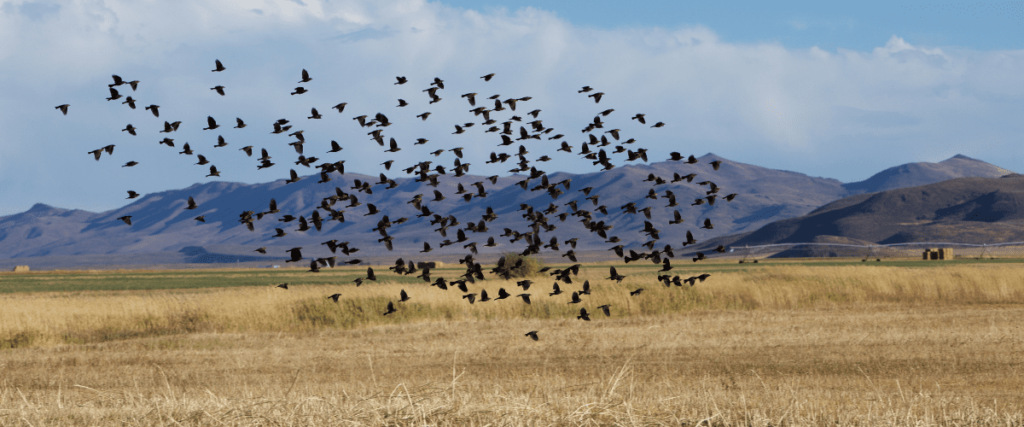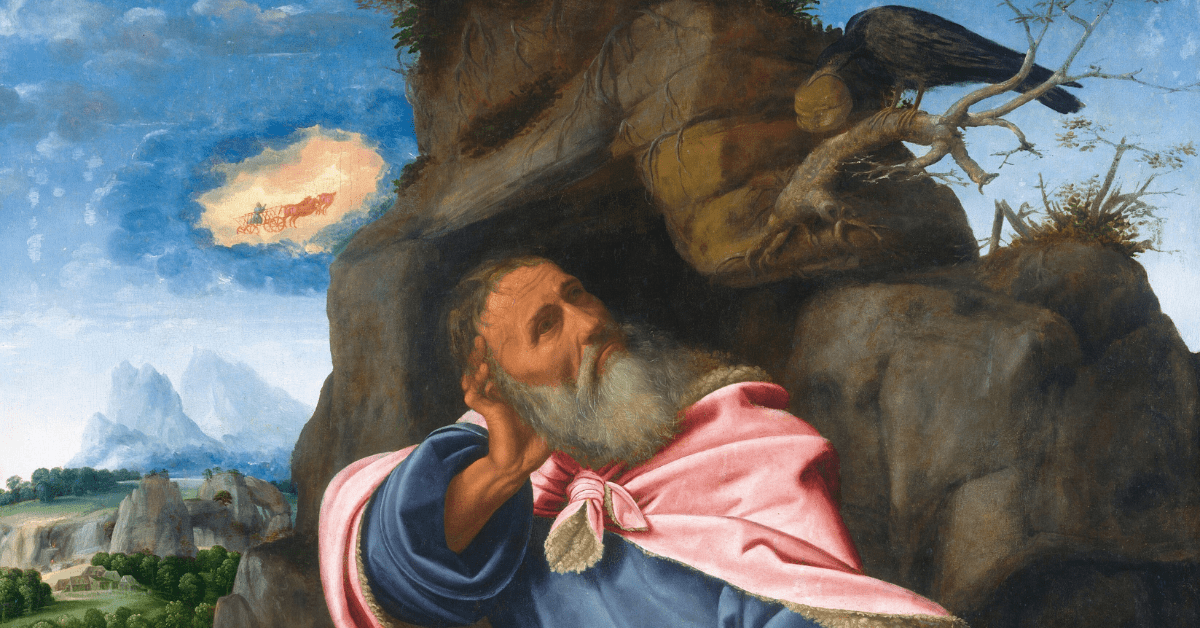During a time of drought, the word of the LORD directed Elijah to camp by the brook Cherith where the ravens would bring him bread and meat twice a day and he could drink from the brook (1 Kings 17:4). The raven is a surprising servant for a prophet as they are described in the law of clean and unclean foods as “detestable” and “abhorrent” (Leviticus 11:13, 15). The raven is also remembered as the bird that did not return to the ark when Noah released one to measure the receding floodwaters. As such, daily dependence on these birds for food was likely a humbling and extraordinary experience for Elijah.
When our family faced sudden unemployment in the summer of 2021, the story of Elijah and the ravens was a comfort to me. I had been drawn to the passage because our area was in moderate drought and wildfires were raging in the west, creating air index warnings and haze for weeks. The fires, the dead grass, the cracked ground, and the loss of income all filled me with anxiety. From this place of uncertainty, Elijah’s story surfaced in my mind and I began to ponder his experience. The prophet Elijah delivered word of a 3-year drought that would come as judgment against the wicked leadership of King Ahab and his wife, Jezebel. After delivering this message of judgment, Elijah was sent to hide in a ravine where he would survive by the water of the brook and the hospitality of the ravens.
As I meditated on this story during my own season of drought, I began to find feathers. I walked out to my mailbox on the road one day and found a stiff, shiny black feather in the driveway. My mind immediately connected the feather to the ravens in Elijah’s story. Living in rural Wisconsin, ravens often are present around my place; although crows are more common. But raven or crow, I began to find black feathers on my walk to the mailbox on a regular basis. Over the summer, I picked up seven of these touchstones to Elijah’s story.
The feathers were like tokens of encouragement that God was aware of my needs and would provide. They were what one of my friends calls “God winks.” With each feather, I felt reminded of God’s presence and care, and a growing sense of peace.
The raven is a fitting reminder of the ultimate source of provision and care. Throughout scripture this common bird portrays God’s provision. God pointed out the raven to Job in his despair, asking:
“Who prepares for the raven its nourishment
When its young cry to God
And wander about without food?” (Job 38:41)
The Psalmist answered:
“Praise the LORD!
…The LORD builds up Jerusalem;
He gathers the outcasts of Israel.
He heals the brokenhearted,
And binds up their wounds….
Great is our Lord, and abundant in strength;
His understanding is infinite.
The LORD supports the afflicted;
He brings down the wicked to the ground…
He gives to the beast its food,
And to the young ravens which cry.” (from Psalm 147)
And Jesus heartens us to leave our worldly worries in the confidence of God’s care and provision: “Consider the ravens, for they neither sow nor reap; they have no storeroom nor barn, and yet God feeds them; how much more valuable you are than the birds!” (Luke 12:24)

The Greek word for raven or crow (korax) probably comes from the root word korennymi, meaning “to satiate, to cram, glut, satisfy, to eat enough.” This same word relationship is preserved in the English word “ravenous.” Thus with a name that emphasizes its very appetite, the raven gives the discouraged a sure reminder of God’s sufficiency. We have great assurance that God will meet our needs with generous abundance and infinite understanding.
Elijah’s story also challenged me with the idea that God’s provision often comes in unexpected ways. As unlikely as the ravens were as a source of provision for a prophet, Elijah’s next source of sustenance was just as shocking: a starving widow in enemy territory. After the drought dried up the brook, God called Elijah to go to Zarephath in Sidon where a widow would provide for him.
At first I didn’t interpret these Elijah narratives as “call” stories; yet they became a part of my own response to God’s call. It was only a few months after finding my feather collection that I applied to seminary. And a year later I began Clinical Pastoral Education as a student chaplain at the regional hospital. As I examined God’s call on my life, I discerned the call language in Elijah’s story:
“Then the word of the LORD came to him, saying, ‘Go away from here and turn eastward, and hide yourself by the brook Cherith, which is east of the Jordan. And it shall be that you will drink from the brook, and I have commanded the ravens to provide food for you there’” (1 Kings 17:2-4).
And then again: “Then the word of the LORD came to him, saying, ‘Arise, go to Zarephath, which belongs to Sidon, and stay there; behold, I have commanded a widow there to provide food for you’” (1 Kings 17:8-9).
I love that in each case, God’s call for Elijah included a statement of provision. These promises tempered my own accompanying fears about income and resources to take on graduate work with young children at home in the midst of unemployment. I have tucked my feathers in places like my car and my wallet where I sometimes need to be reminded that if God has told me to go, then I can trust that He will provide—and sometimes in ways I do not expect. The first of which for me, was a full-tuition scholarship to Luther Seminary.
But above and beyond our earthly needs, Jesus’ words in Luke 12 remind us that He will feed our soul with the bread that is our life. Such confidence in His sufficiency frees us to live generously and to seek His kingdom first.




Thank you for sharing! These are both stories I’ve read several times that I needed to be reminded that if God has a calling for you, He will provide. It won’t always be in surplus but it will be sufficient for the actual needs. Trusting God in those moments is very difficult. Thank you for sharing your story and how you use the feathers as constant reminders when you need them.
Amazing, thanks for sharing Laura